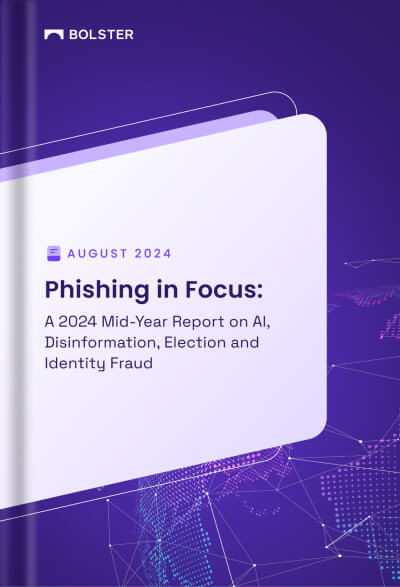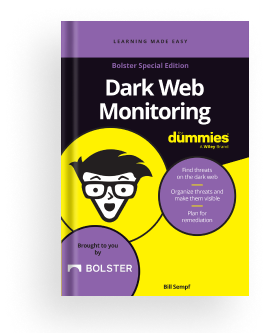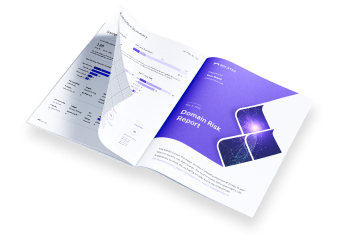Reputation Monitoring 101: A Comprehensive Beginners Guide
In today’s digital age, maintaining a strong online reputation is crucial for businesses and individuals alike. Reputation monitoring helps you stay ahead of the curve by proactively tracking and managing your online image. In this comprehensive beginner’s guide to reputation monitoring, we’ll explore what it is, how to get started, and best practices to ensure your brand remains untarnished. Whether you’re an IT security professional or a risk management expert, understanding the fundamentals of reputation monitoring is essential in safeguarding your organization’s credibility and success. Let’s dive in!
What is Reputation Monitoring?
Reputation monitoring is the practice of tracking and analyzing online comments, reviews, and feedback about a brand or business. It involves using analytics tools like Chatmeter to gather data on customer sentiment and identify areas for improvement. By monitoring their brand reputation, businesses can proactively address any negative feedback, improve customer satisfaction, and protect their image in the marketplace.
Definition of Reputation Monitoring
Understanding reputation monitoring involves comprehending the process of tracking and analyzing online mentions, comments, and reviews related to a brand or business. It encompasses evaluating the perception of an organization in various digital channels to gauge its brand reputation accurately. The scope of reputation monitoring extends beyond social media platforms, incorporating websites, forums, blogs, and other online sources.
Reputation monitoring enables businesses to gain valuable insights into customer sentiment, identify potential issues, and proactively address negative comments or reviews to protect their image in the market.
The purpose and objectives of reputation monitoring revolve around gaining insights into customer sentiment towards a company or its products/services. By utilizing analytics tools like Chatmeter, businesses can monitor and assess feedback from customers across different channels. This allows them to identify potential issues or areas for improvement promptly while also fostering better engagement with their target audience. Reputation monitoring helps protect a company’s image by proactively addressing negative comments or reviews that may impact its overall standing in the market.
Why Reputation Monitoring is Important
The impact of online reputation on businesses cannot be underestimated. A strong brand reputation is crucial for attracting and retaining customers, while a negative one can lead to loss of business opportunities and trust. Active monitoring helps in identifying potential risks and threats, allowing businesses to address them proactively before they escalate into major issues. By monitoring comments, reviews, and mentions across various platforms using tools like chatmeter or analytics software, businesses can gain valuable insights into customer perception and trust levels, enabling them to make necessary improvements for enhancing their overall reputation.
Benefits of Reputation Monitoring
Proactive management is crucial in mitigating reputational damage. By actively monitoring and responding to comments and feedback from customers, businesses can address any issues or concerns before they escalate into larger problems. This allows for swift resolution and helps maintain a positive brand reputation.
Real-time insights provided through reputation monitoring enable improved decision-making. Analyzing customer feedback and trends allows businesses to identify areas of improvement, make necessary adjustments, and stay ahead of the competition. These insights provide valuable data that can inform strategic business decisions, leading to enhanced brand positioning and a competitive advantage in the market.
Reputation Monitoring vs. Social Media Monitoring
Distinguishing between overall online presence monitoring and social media specific analysis is crucial. While overall online presence monitoring involves tracking brand reputation across various platforms, social media monitoring focuses specifically on analyzing comments and engagement on social media channels. Social media plays a significant role in shaping a company’s image as it provides a platform for customers to voice their opinions and share experiences with others. Therefore, businesses must understand the complementary relationship between reputation monitoring and social media listening in order to effectively manage their brand reputation.
Key Metrics to Monitor
Key Metrics to Monitor
To effectively monitor your brand reputation and evaluate the success of your online presence, it is crucial to track key metrics. Here are three important metrics to consider:
- Tracking online reviews, ratings, and feedbacks from customers
- Evaluating sentiment analysis for mentions related to your brand or product/service
- Measuring share-of-voice in comparison to competitors’ brands.
These metrics can provide valuable insights into customer perception, help identify areas for improvement, and gauge the effectiveness of your marketing efforts. Utilizing analytics tools like Chatmeter can streamline this process by providing real-time data on customer comments and sentiment analysis.
How to Get Started with Reputation Monitoring
Identify Your Goals and Objectives:
Before diving into reputation monitoring, it is crucial to clearly define your goals and objectives. Are you looking to protect your brand’s online reputation, identify potential threats, or monitor customer sentiment? Understanding what you want to achieve will help shape your monitoring strategy.
Choose a Reputation Monitoring Tool:
Next, select a reputable reputation monitoring tool that aligns with your specific needs. Consider factors such as data sources, real-time alerts, sentiment analysis capabilities, and ease of use. Investing in the right tool will streamline the monitoring process and provide valuable insights for proactive decision-making.
Set Up Your Monitoring Parameters:
Once you have chosen the tool, configure your monitoring parameters based on your goals. Specify keywords related to your brand or industry that you want to track. Set up relevant filters to exclude noise from irrelevant mentions and focus on meaningful data.
Monitor and Analyze Data:
With everything set up, actively monitor the collected data for any changes or trends in sentiment towards your brand. Regularly analyze this information to identify patterns or potential issues early on. This ongoing evaluation will enable you to make informed decisions about how best to manage and protect your online reputation.
Identify Your Goals and Objectives
Understanding the importance of reputation monitoring is crucial in today’s digital landscape. It allows you to stay informed about what others are saying about your brand, and address any potential issues before they escalate. Defining your specific goals and objectives for reputation monitoring is essential to ensure that you are targeting the right areas and measuring success effectively. By aligning reputation monitoring with your overall business strategy, you can use the insights gained to make informed decisions and protect your brand’s reputation.
- Monitor online conversations related to your brand
- Identify potential reputational risks or crises
- Measure customer sentiment towards your brand
- Evaluate the effectiveness of marketing campaigns
- Benchmark against competitors in terms of online presence
End of paragraph
Choose a Reputation Monitoring Tool
Researching and evaluating different reputation monitoring tools is an essential step in choosing the right tool for your organization. Consider factors such as features, pricing, and customer reviews to ensure that you select a tool that best suits your needs. A reputable reputation monitoring tool can provide valuable insights into your organization’s online presence and help protect against potential risks.
- Research and evaluate different tools
- Consider features, pricing, and customer reviews
- Select a tool that suits your organization’s needs
Set Up Your Monitoring Parameters
Determining the scope of your monitoring is crucial to effectively manage your online reputation. Identify key platforms such as social media and online review websites that are relevant to your industry or brand.
Set up keyword filters to monitor important mentions or keywords related to your business. This will ensure that you don’t miss any significant discussions or feedback.
Establish alerts or notifications for real-time updates so that you can respond promptly to any issues or opportunities as they arise. Stay on top of the conversation and address concerns in a timely manner, enhancing your brand’s reputation.
Monitor and Analyze Data
Consistently reviewing monitored data is essential to identify potential risks or threats to your company’s reputation. By regularly analyzing trends in sentiment, feedback, and customer satisfaction, you can gain valuable insights into how your brand is perceived by the public. Additionally, evaluating the impact of any negative mentions on brand perception allows you to proactively address issues and maintain a positive image in the eyes of your target audience.
Best Practices for Reputation Monitoring
Regularly monitoring and reviewing online mentions is crucial for effective reputation management. By keeping a close eye on what is being said about your brand or organization online, you can quickly address any negative feedback or comments before they escalate. It also allows you to identify opportunities for engagement with positive mentions, strengthening your brand’s image.
In addition to monitoring your own reputation, it’s important to keep an eye on your competitors’ reputations as well. This helps you stay informed about industry trends and potential threats that could impact your business. By being proactive in tracking their online presence, you can gain valuable insights and adjust your strategies accordingly.
Overall, staying alert to emerging trends and issues is essential in the ever-changing digital landscape. By continuously monitoring the online conversation surrounding your brand or industry, you can proactively address any potential risks or challenges before they become major problems. This enables you to maintain a strong reputation while positioning yourself as a knowledgeable authority within your field of expertise.
Regularly Monitor and Review Online Mentions
Set up Google Alerts for your company name to receive instant notifications whenever your brand is mentioned online. Additionally, monitor social media platforms for mentions and comments by actively engaging with followers and addressing any concerns or issues promptly. Enhance your reputation monitoring efforts by leveraging reputation monitoring tools that allow you to track online conversations about your brand, ensuring that you stay informed about what people are saying and can respond accordingly.
Respond Promptly and Professionally
Acknowledge feedback, whether positive or negative, to show that you value your customers’ opinions. Address concerns or complaints promptly to demonstrate excellent customer service. Maintain a professional tone while engaging with customers to ensure effective communication and build trust.
Monitor Competitors’ Reputation
- Track their social media activities and customer interactions
- Monitor their online reviews on popular review sites
- Stay updated on any news or events surrounding your competitors
In order to stay ahead of the competition, it is crucial to monitor and analyze your competitors’ reputation. By tracking their social media activities and customer interactions, you can gain valuable insights into how they are perceived by their target audience. Monitoring their online reviews on popular review sites allows you to understand what customers are saying about them and identify areas where they may be falling short. Additionally, staying updated on any news or events surrounding your competitors will help you anticipate potential challenges or opportunities that may arise in the market. Keep a close eye on your rivals to ensure that you can effectively position yourself as a leader in the industry.
End of Monitor Competitors’ Reputation section
Stay Alert to Emerging Trends and Issues
Follow industry news sources for relevant updates. By staying informed about the latest developments in your field, you can proactively address emerging trends and issues before they become major challenges. Joining relevant forums or communities is another effective way to stay up-to-date. Engaging in online discussions can provide valuable insights and help you identify potential risks early on. Keep a watchful eye on these discussions as they often highlight emerging issues that may impact your industry or organization’s reputation.
Conclusion
In conclusion, reputation monitoring is of utmost importance for IT security and risk management professionals. By implementing a reputation monitoring strategy, businesses can proactively protect their brand image and mitigate potential risks. The key benefits of this approach include early detection of online threats, prompt response to negative feedback or reviews, and the ability to maintain a positive online presence. To get started with reputation monitoring, it is recommended to choose a reliable monitoring tool, set up alerts for mentions or keywords related to your business, and regularly analyze the data collected to make informed decisions about your brand’s reputation management efforts.
How Bolster Can Help
Bolster’s domain monitoring solutions and other defensive strategies will make sure your company has true domain security in place. Bolster balances domain acquisition with monitoring to reduce the likelihood of cyberattacks and manage security costs.
Additionally, Bolster will remain proactive and monitor the security threat landscape to keep your domain safeguarded. With Bolster’s help, your brand’s reputation will remain protected.
Request a demo of our domain monitoring software today, or start with a complimentary and customized Domain Risk Report to see what domain risks we detect for your organization.
Also checkout our community tool CheckPhish





